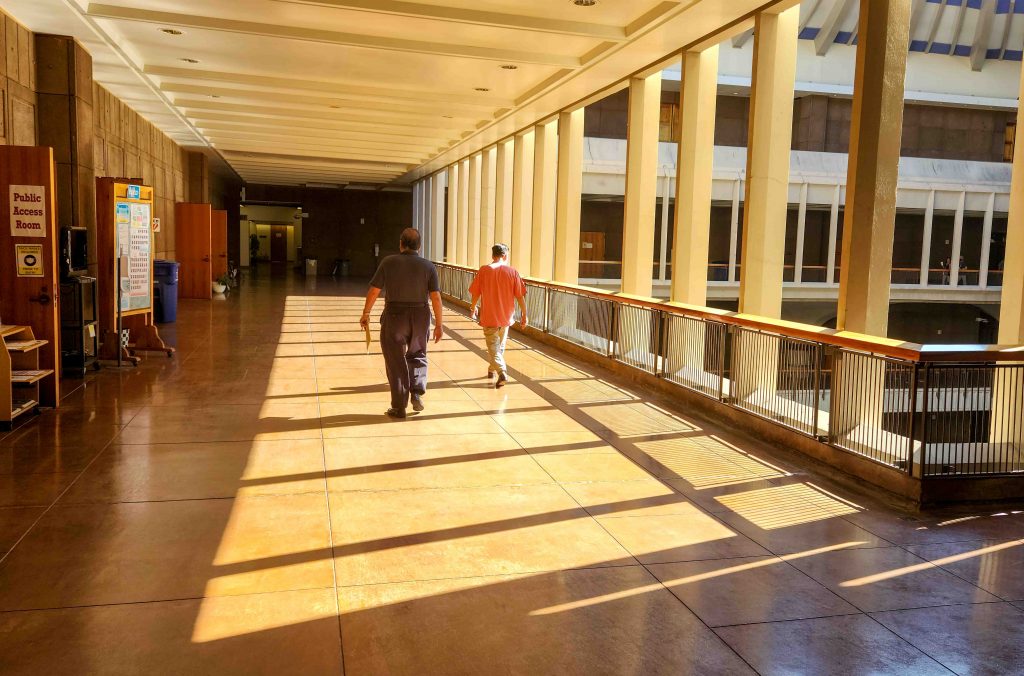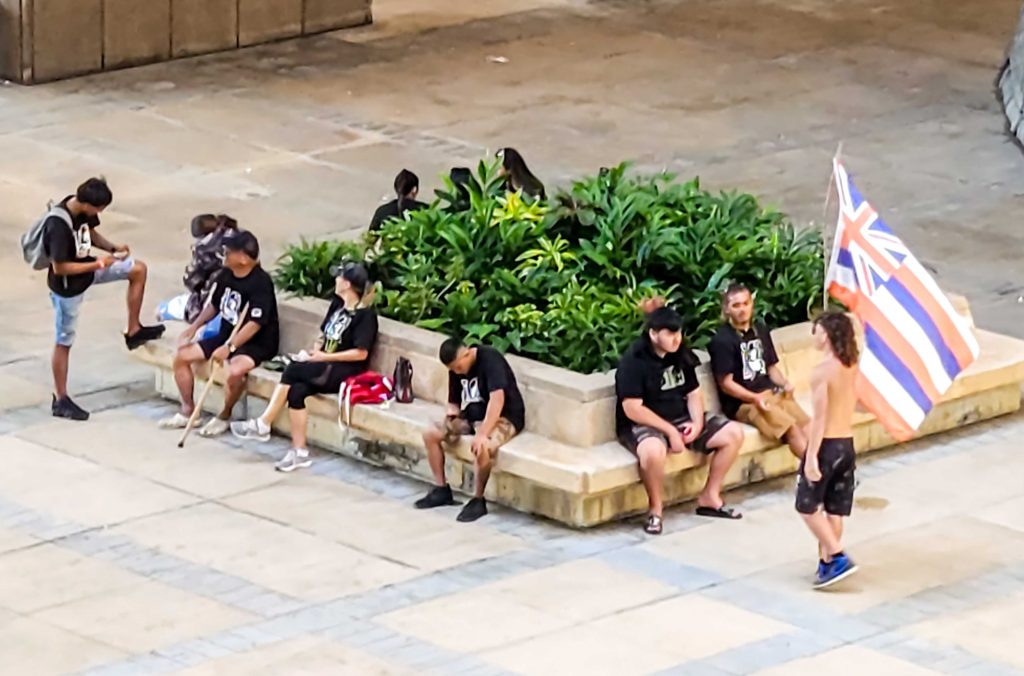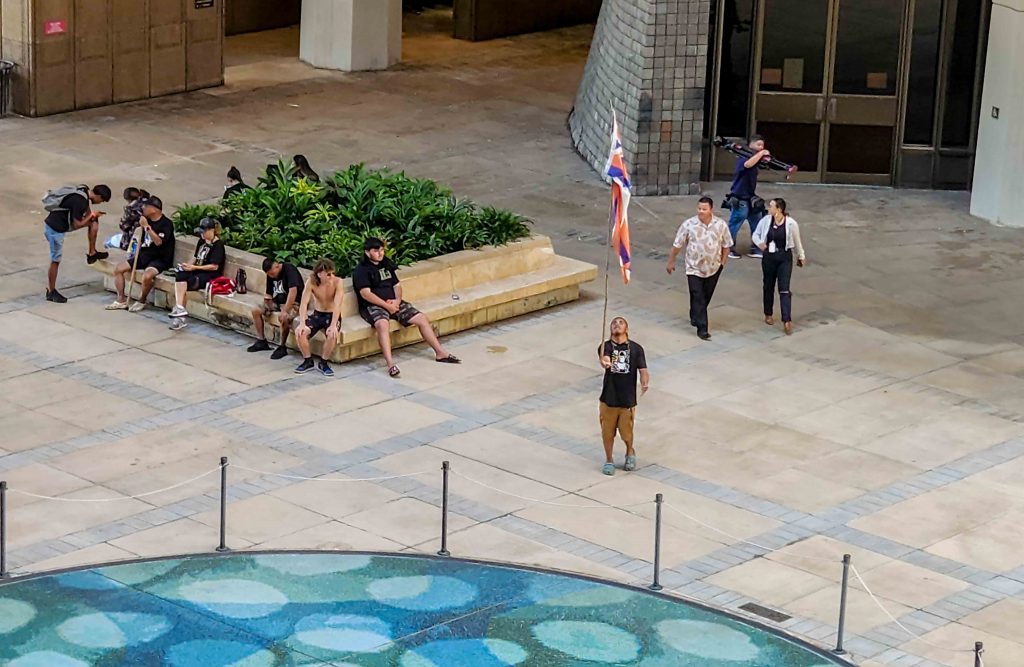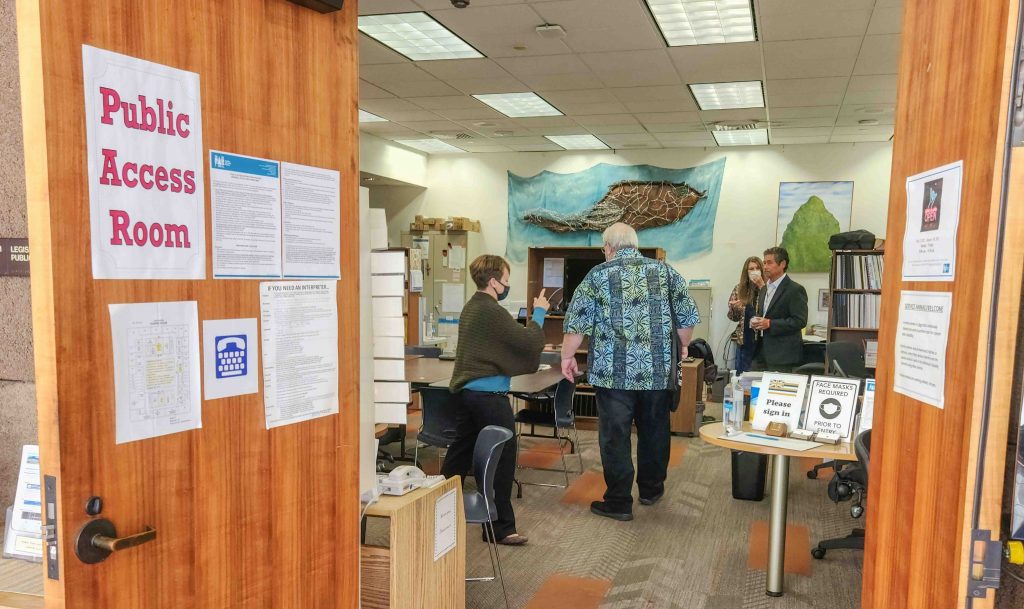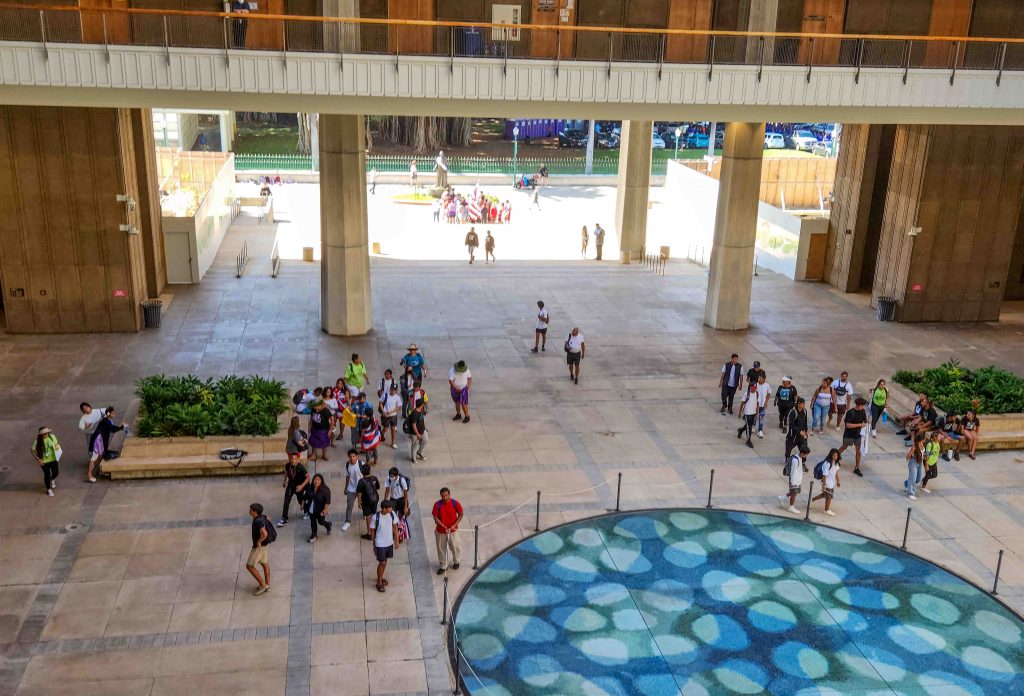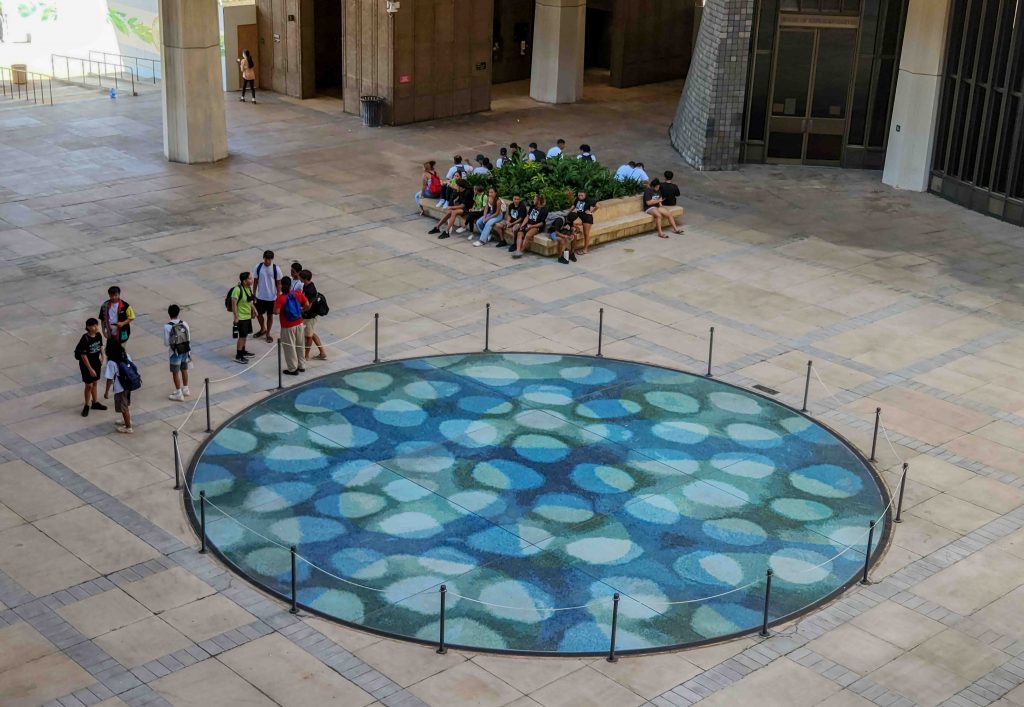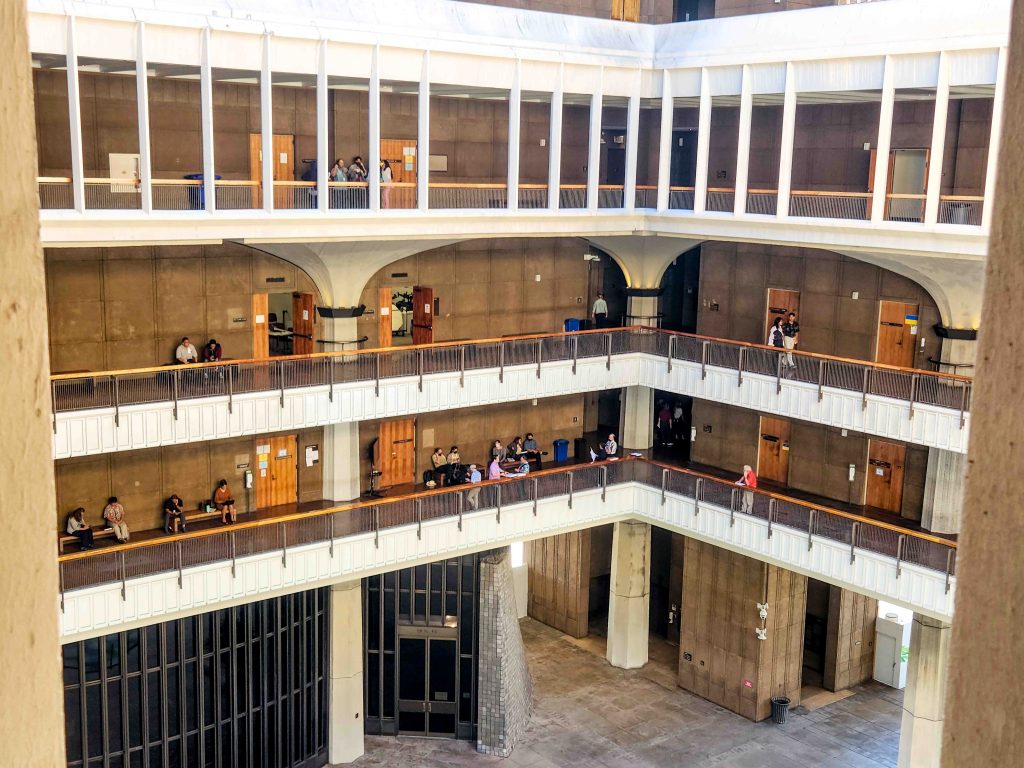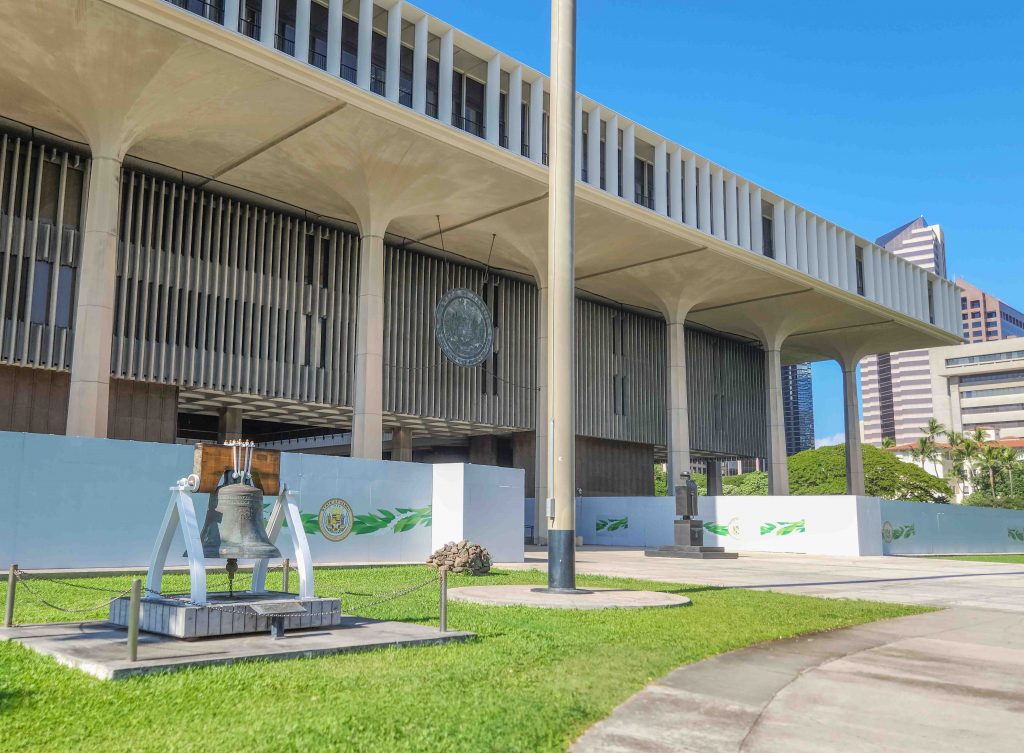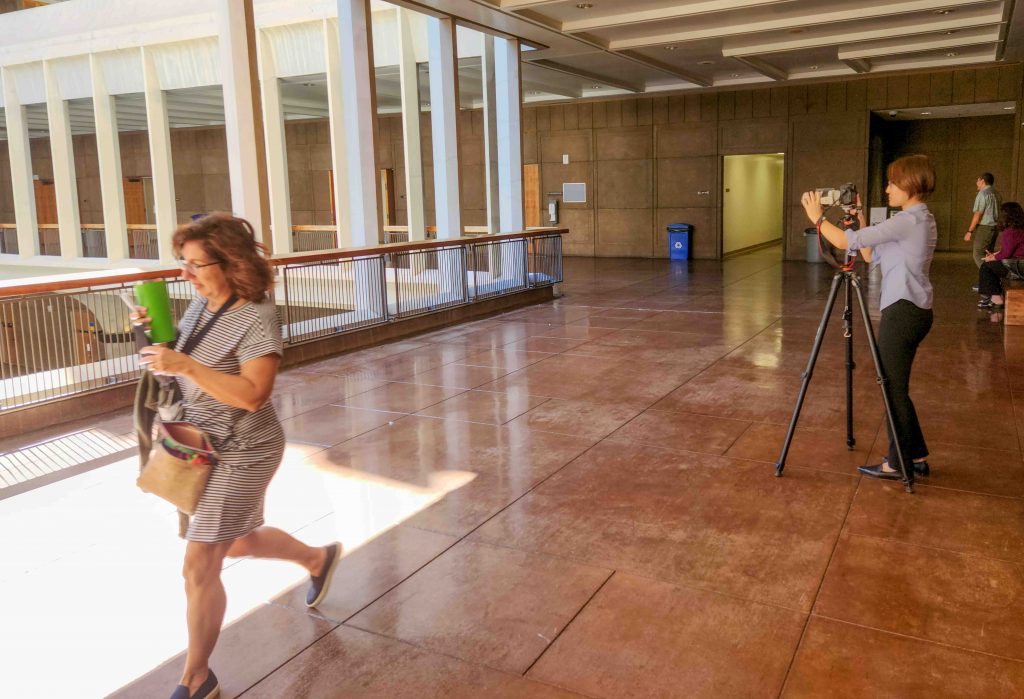Hawaiʻi State Legislature opens 32nd session today with optimism and priorities
HONOLULU — The halls and corridors of the state Capitol in Honolulu on Tuesday were relatively quiet the day before the start of the 32nd Hawai’i State Legislature.
There were the conversations, phone calls, handshakes and rustling papers you’d expect to see and hear in preparation for the opening of the session, including a janitor in a blue aloha shirt shining the fourth-floor railing that overlooks the rotunda.
It was the calm before the storm, as legislators, their staffs and other Capitol employees made their final preparations.
Both chambers of the Legislature will convene at 10 a.m. The proceedings will be aired live on ‘Ōlelo Channel 49, the Hawaiʻi House of Representative YouTube Channel and the Hawaiʻi Senate YouTube Channel.
While the public is welcome to attend the opening session, seating will be limited on a first-come, first-served basis.
Cathy Lee, communications director for the Hawai’i House of Representatives, said there have been weeks of preparation leading up to this year’s legislative session.
Whatʻs new? For starters, the Capitol is open to the pubic and in-person public sessions are back for the first time since COVID-19 led to social distancing
Schoolchildren visited the Capitol on Tuesday, a signal that it is indeed back to business as usual, according to a staffer in the office of Big Island Sen. Joy San Buenaventura.
San Buenaventura said she’s happy people once again can participate in the opening day sessions and the legislative process in person — sharing their opinions and concerns, and ensuring “they’re voices will not be silenced.”
She’s also excited about the new faces that will grace both chambers of the Legislature this year: “New people, hopefully new ideas,” San Buenaventura said.
Once again, the Democrats will have an overwhelming majority in both the House and Senate.
The house makeup is 45 Democrats and 6 Republicans, which is a slightly less majority than the 47 to 4 mix in the last legislature. With redistricting after the 2020 Census, the Big Island has one more seat, with O’ahu losing a seat.
In the Senate, it’s 23 Democrats and 2 Republicans, which also is a slight decrease from the Democratsʻ 24-1 majority in the previous legislature.
This is the 13th year in a row that Democrats have held the trifiecta, with majorities in both chambers and the new governor, Josh Green, also being a Democrat.
But donʻt think it will be a breeze to push through legislation. There already has been some rumblings between the governor and legislators in his own party to indicate the session could be a power struggle.
Bu at the start of a legislative session, there is always hope and optimism.
House Majority Leader Nadine K. Nakamura (D-15, Kaua’i) said: “We are entering this year with much determination and hope. I would like to thank the hard work of my colleagues to build more affordable housing, provide financial relief to working families, provide mental health resources, and protect our natural environment to mitigate and adapt to climate change.”
Here are the House Majority Caucus’ priorities for this legislative session:
Affordable Housing: The House Majority will continue to support funding to build more affordable rental and for-sale housing for low- and moderate-income families in Hawai’i. The State legislature’s past investments will yield more than 7,000 affordable housing units over the next few years. Due to the length of time it takes to develop housing, supply chain issues and inflation, the House believes financing must be in place to keep the pipeline of affordable housing projects moving forward. The House Majority also will continue to support programs addressing statewide homelessness.
Financial Relief for Low-Income Families: Hawai’i’s cost of living is a barrier to financial security for many of our residents. The House Majority will continue to support working families by providing financial relief to those who are struggling to make ends meet in our state.
Mental Health Services: The House Majority recognizes the growing need for mental health services and will support efforts to improve and expedite treatment for those experiencing severe mental health crises, improve crisis response services and address critical mental health workforce needs.
Natural Resources: The House Majority values the natural beauty and natural resources of the State of Hawaiʻi and believes resources should be targeted to the agencies that help to mālama these resources and help to mitigate and adapt to climate change. By improving natural resource management, we can mitigate the impact of climate change and protect Hawai’i’s residents.
For more information on the House Majority, visit www.hawaiihousedemocrats.com.
The Senate Majority Caucus’ also outlined its priorities for the upcoming session.
“These legislative priority areas reflect the issues and concerns that were brought forth by all 23 members of our caucus during our convening in November,” said Senate Majority Leader Dru Mamo Kanuha. “Our hope is that by working collaboratively with the Senate Minority and the House of Representatives, we will make substantive progress on these important issues.”
The Senate Majority Caucus priorities:
Housing: The Senate is committed to addressing the statewide shortage of housing by supporting planned housing projects to provide residents with affordable rent or purchase options; increasing transit-oriented development around major infrastructure projects across the state; developing workforce housing solutions to support residents employed in high demand sectors; seeking opportunities for residents in middle-income brackets to purchase homes; supporting legislation that makes affordable housing remain affordable in perpetuity; and collaborating with the counties to reform the permitting process for affordable housing development.
Education: The Senate is committed to improving Hawai‘i’s education system by addressing teacher shortages and retention through programs such as dedicated affordable housing and educational pathways in partnership with local high schools and the University of Hawai‘i system; supporting early childhood education initiatives, including universal Pre-Kindergarten programs; coordinating with various state agencies to establish educational and vocational tracks in K-12 schools for emerging industries; and pursuing school-level accountability.
The Senate’s education priorities also include higher education, with an emphasis on the development of nursing curriculum and other healthcare specialist programs in schools across the state; educator retention through competitive salaries with industry standards; and prioritizing the diversification of key workforce development pathways in partnership with the University of Hawai‘i system.
Health: The Senate remains committed to improving the health of the state’s residents by addressing gaps in the health continuum of care and expanding healthcare workforce training and education on the neighbor islands — specifically, in rural and underserved communities.
The Senate’s health priority also includes improving the mental health of the state’s residents by establishing annual mental health checkups as a mandatory covered health insurance benefit.
Agriculture: The Senate is committed to promoting and supporting the state’s agriculture and aquaculture resources by increasing personnel assigned to the Department of Agriculture’s Division of Aquaculture, ensuring the timely transfer of land from the Department of Land and Natural Resources to the Department of Agriculture pursuant to Act 90, Session Laws of Hawaiʻi 2003.
The Senate’s priority also includes reimagining the management of the state’s agricultural industry by focusing efforts on the impacts of climate change and invasive species/pests; developing necessary infrastructure to empower local farmers to produce value-added products to market, including the farm-to-school initiative; and examining the state’s medical marijuana industry and other potential agricultural revenue streams that will promote diversity within Hawai‘i’s economy.
Economic Development and Infrastructure: The Senate is committed to expanding economic opportunities in Hawai‘i by partnering with the counties, state agencies, and the private sector to identify key industries and economic drivers that can be properly aligned with education and workforce development in each specific county; developing micro-grid technology to provide reasonable, reliable energy to rural communities; improving infrastructure across the state through Department of Transportation projects at airports and state roads; and developing further economic opportunities in aquaculture through research.
Environmental and Natural Resource Management: The Senate is committed to restoring and preserving a safe climate for residents of the state by exploring carbon offsets, carbon capture technology, and a carbon taxwhile also addressing existing and future problems due to rising sea levels and other climate change impacts.
The Senate also is committed to protecting the state’s natural resources by improving water resource infrastructure and wastewater management throughout the state, which includes considering the recommendations of the Cesspool Conversion Working Group established pursuant to Act 132, Session Laws of Hawai‘i 2018.
What else do you need to know about the 2023 Hawaiʻi State Legislature, click here.





